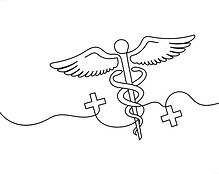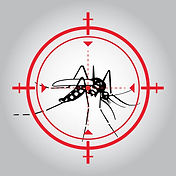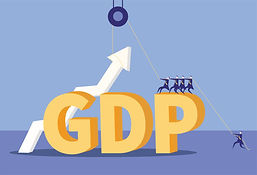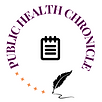Public Health News Snippets 24 - 30th April, 2023
World Malaria Day 2023 - WHO emphasizes innovations in preventive, diagnostic, and treatment strategies.

The World Malaria Report mentions that in 2021, there were about 247 million new cases and 6,19,000 deaths due to malaria.
WHO African region was responsible for 95% of all malaria cases worldwide.
On World Malaria Day, 2023, WHO urged the world to develop newer innovations to implement preventive, diagnostic, and treatment strategies.
The theme is “Time to deliver zero malaria: invest, innovate, implement.”
RTS, S/AS01, the first malaria vaccine administered to approximately 1.5 million children in a pilot project, is a step towards malaria prevention.
R21/Matrix-M (R21) vaccine is another vaccine awaiting approval.
Content Editor: Dr. Urmimala Maiti
WHO News Section
Source :
Published on :
Friday, April 28, 2023
Global Health, Malaria, Vaccines, Communicable diseases
‘India wants to make healthcare affordable for the whole world’- PM

The Prime Minister of India mentioned that India’s traditional healthcare has a lot of answers to stress and lifestyle disorders.
He called for an inclusive and integrated global response to healthcare challenges.
He also emphasized the need to guarantee access to everyone within the final mile.
The PM highlighted that, often, the absence of disease is mistaken for good health, but India views health from a more comprehensive perspective.
Health ministers of various countries have attended a two-day conclave along with stakeholders from public, private, professional, and academic domains.
Content Editor: Dr. Anubhav Mondal
The Hindu
Source :
Published on :
Friday, April 28, 2023
Universal healthcare, One Health
Malaria to become notifiable disease across India

This is in line with India’s vision of eliminating Malaria by 2030.
India witnessed an 85.1% decline in malaria cases and around 83.36% decline in deaths during 2015-22.
In order to monitor malaria growth across India, the health ministry reports that near real-time data monitoring is now possible through an integrated health information platform and monthly regional review meetings.
The WHO Regional Director for Southeast Asia further stated that countries in the region with malaria outbreaks should expand access to high-impact tools and treatments for the disease.
Children in the poorest households worldwide have a five-fold increased risk of contracting malaria. Young children who have mothers with poor levels of education and who reside in rural areas are more likely to contract malaria.
Content Editor: Dr. Anubhav Mondal
The Hindu
Source :
Published on :
Friday, April 28, 2023
Malaria, Infectious disease, Notifiable disease, Elimination, Real-time monitoring
Rate of out-of-pocket expenditure in health decreases in India

Health out-of-pocket expenditure from total health expenditure has declined from 62.4% in 2014-15 to 47.1% in 2019-20.
Government health expenditure share in country’s share in country’s total GDP, increased from 1.13% (2014-15) to 1.35% (2019-2020).
The share of private health insurance is also going up.
According to a NITI Aayog member, this shows maturity in terms of the insurance arena as those who can afford health insurance, can also avail from private players.
For further reading, click here.
Content Editor: Dr. Anubhav Mondal
The HIndu Bureau
Source :
Published on :
Friday, April 28, 2023
Health expenditure, Health Insurance, Out-of-pocket expenditure
Dispensing antibiotics without prescription: Incorrect yet common practice around the world.

A Mixed Method systemic review, conducted by researchers from China, analyzed data from 52 countries.
The review found that most of the LMIC countries have been dispensing antibiotics without any prescription.
Recent evidence suggests a new wave of antimicrobial resistance emerging in most parts of the world.
Antibiotics have been a crucial turning point in the history of medical science as they save millions of lives every year.
In recent times, antibiotic resistance has been a major public health problem with significant emphasis from WHO.
The quantitative study indicates that pharmacies located in lower-income areas, staffed by pharmacy owners and private pharmacies are more likely to dispense non-prescription drugs.
A qualitative study suggested four major factors driving dispensing of antibiotics without a prescription: strong customer demand for non-prescription antibiotics combined with a lack of relevant knowledge, pharmacy staff motivated by financial or personal viewpoints, expensive or inconvenient alternative healthcare services or irregular prescribing practices, and weak social, industry, and legal regulation.
Content Editor: Dr. Siddharth Singh
CIDRAP
Source :
Published on :
Friday, April 28, 2023
Antimicrobial Stewardship, Antimicrobial Resistance
Asia Pacific Leader's Conclave on Malaria Elimination

On 24th April 2023, a day before World Malaria Day, New Delhi hosted the "Asia Pacific Leader's Conclave on Malaria Elimination."
The Ministry of Health of India and the Asia Pacific Leaders Malaria Alliance (APLMA) countries like the Solomon Islands, the Republic of Fiji, and the Regional Director of WHO SEARO attended the conclave.
Uplift political commitment towards an Asia Pacific Free from Malaria by 2030.
Only India has reported a decline in malaria cases during the COVID-19 pandemic among 11 countries, that are part of the High Burden to High Impact initiative by WHO for targeted Malaria response.
Content Editor: Dr. Urmimala Maiti
Press Information Bureau
Source :
Published on :
Thursday, April 27, 2023
Malaria, Elimination
100 ‘eat right’ food streets planned across India

The objectives of this project are to promote safe food habits, reduce food-borne illness, promote easy access to safe and hygienic food, and hence improve overall health outcomes.
This would help to boost the Eat Right Campaign, boost food safety, and improve the credibility of local food businesses.
Financial assistance of ₹1 cr per food street will be given to the States and the Union Territories.
Content Editor: Dr. Anubhav Mondal
The Hindu
Source :
Published on :
Thursday, April 27, 2023
Food Safety, Nutrition, Eat Right Campaign
Vaccine confidence has gone up in India according to a UNICEF report

Data was collected by The Vaccine Confidence Project and was published by UNICEF on 20 April 2023.
Vaccine confidence declined in South Korea, Japan, Ghana, Senegal and Papua New Guinea.
The major causes for declining vaccine confidence are misleading information and declining trust in vaccine efficiency.
This decline comes as a backdrop as the world sustained the biggest backslide in childhood immunization in the last 30 years.
A report said that a total of 67 million children missed out on vaccinations between 2019 to 2021, with vaccine coverage levels declining in 112 nations.
Content Editor: Dr. Anubhav Mondal
The Hindu
Source :
Published on :
Thursday, April 27, 2023
Immunization, Vaccine efficiency, Vaccine coverage, Vaccine confidence
WHO releases the Health Inequality Data Repository

WHO launches "Health Inequality Data Repository (HIDR)" on 20th April 2023.
The repository consists of disaggregated data covering the span of public health with the dimensions of inequality.
It opens up a platform for conducting research and data analysis on inequality at the global, national, and subnational level.
Encourages countries to adopt "Health inequality monitoring" routinely.
It consists of: 2000 indicators grouped into 22 dimensions of inequality, for example demographic, socioeconomic and geographical factors.
59 datasets from 15 sources make up 11 million data points in HIDR.
Content Editor: Dr. Urmimala Maiti
WHO News Section
Source :
Published on :
Tuesday, April 25, 2023
Global Health, Health inequalities
Gender disparity in agricultural industry predisposing to food crisis

The production of agricultural goods for food and non-food purposes, as well as activities connected to food storage, transportation, processing, and distribution, employ more than one third of all working women worldwide.
However, a fresh report from FAO claims that the gender pay gap, which accounts for a 24% difference in productivity between women and men farmers on farms of same size, is caused by gender inequities such as lower access for women to resources and expertise as well as a larger unpaid care load.
Additionally, women in the agricultural industry receive pay that is about 20% less than that of men.
In a period of rising global hunger, addressing the gender gap in farm production and the wage disparity in agricultural employment, according to FAO, would "increase global gross domestic product by nearly $1 trillion and reduce the number of food-insecure people by 45 million".
More than 345 million people worldwide, an increase of about 200 million since early 2020, are predicted to experience food insecurity at crisis levels this year, according to the UN's World Food Programme (WFP). 43 million of them are on the verge of famine.
Content Editor: Dr. Rajat Sharma
Food and Agriculture Organisation (FAO), UN
Source :
Published on :
Tuesday, April 25, 2023
Global Health, Nutrition
More protective efficacy of two medication combinations against severe COVID-19

At 12 locations in Brazil between January 15 and July 6, 2022, a team led by Stanford University evaluated the use of the oral selective serotonin reuptake inhibitor fluvoxamine in combination with the inhaled corticosteroid budesonide in non-hospitalized adults with early symptoms of COVID-19 and at least one risk factor for severe disease.
More patients in the treatment group than in the placebo group were either hospitalised within 28 days or evaluated in an emergency setting for COVID-19 for more than 6 hours.
Weill Cornell Medicine researchers led a phase 2/3 platform trial assessing the safety and efficacy of amubarvimab plus romlusevimab.
Compared to the placebo group, recipients of amubarvimab plus romlusevimab saw a considerably decreased risk of adverse events.
The combination was equally effective against Delta and pre-Delta strains, according to a subgroup analysis of individuals possessing variation data, but the authors predicted that its efficacy against the now predominate Omicron variant would be restricted.
Content Editor: Dr. Anubhav Mondal
CIDRAP
Source :
Published on :
Tuesday, April 25, 2023
COVID 19
The new norm: More heat waves and fewer cold waves in India

A study, Bhattacharya et al. discovered that every year, the number of days with abnormally high temperatures rises during the summer while the number of days with unusually low temperatures falls during the winter.
The scientists discovered that the frequency of heat wave episodes is rising at a pace of 0.6 incidents every ten years.
The researchers discovered that the frequency of cold waves is dropping by 0.4 occurrences every ten years.
The authors highlight the divergent patterns of heat waves and cold waves.
For instance, across the arid and semi-arid climatic region, heat waves are more frequent whereas cold waves are less frequent.
Content Editor: Dr. Anubhav Mondal
Springer
Source :
Published on :
Monday, April 24, 2023
Environment, Climate change
Moving towards a Healthier Heart by Trans Fat Elimination Programme

The increased risk of coronary heart disease morbidity and mortality associated with the intake of trans fatty acids compels World health leaders to propose the WHO Validation Programme for Trans Fat Elimination.
The member states that meet the criteria set by WHO will receive a Validation certificate and will be recognized publicly for the steps taken to eliminate industrially processed foods from national food supplies.
The applications are to be submitted by 19th May 2023.
WHO urges countries to: revisit their best practice policies if already present place their statement of interest if they are yet to implement in 2023 take action if no step has been taken as of yet.
Content Editor: Dr. Urmimala Maiti
WHO news section
Source :
Published on :
Monday, April 24, 2023
Non-Communicable Diseases, Global Health
WHO plans to upgrade its Prevention strategies with PRET

Recovering with learnings of COVID-19 pandemic and other ongoing surge of infections, World Health Organisation is launching an initiative to help countries ensure systems and capacities to speed up every aspect of their management of emerging threats, from response and recovery.
Calling it as Preparedness and Resilience for Emerging Threat initiative or PRET, will be hosted in a global meeting on 24-26th April, 2023 and would be launched first with a focus on respiratory pathogens.
It mainly focuses on improvement of pandemic preparedness by focusing mainly on the mode of transmission of pathogens.
It particularly aims to strengthen existing systems and capacities and to fill gaps.
Content Editor: Dr. Siddharth Singh
World Health Organisation
Source :
Published on :
Monday, April 24, 2023
Global Public Health
Message from the Director's desk before the World Immunization Week 2023

The Director of the Department of Immunization, Vaccines and Biologicals, WHO, Kate Obrien, speaks on the highlights of the:
First Strategic Advisory Group of Experts on Immunization held in March 2023.
The meeting stressed intensifying routine and catch-up immunization activities and outbreak response preparedness.
The theme for World Immunization Week (24 to 30 April 2023) : "The Big Catch-up" is in line with the Immunization Agenda 2030 to spread awareness about the role of immunization in vaccine-preventable illnesses.
The meeting also released the updated Roadmap for COVID-19 vaccination in the Omicron era.
Content Editor: Dr. Urmimala Maiti
WHO News section
Source :
Published on :
Monday, April 24, 2023
Global health, Vaccination, Immunization
Launch of Animal Pandemic Preparedness Initiative (APPI)

"Animal Pandemic Preparedness Initiative (APPI)" and“Animal Health System Support for One Health (AHSSOH)” project by the Union Minister of Fisheries, Animal Husbandry, and Dairying is launched.
As a step forward toward the National One Health Mission, the APPI will work under the pillars of:
Monitoring and surveillance Disease modeling and early warning and response systems Outbreak investigation and response Coordinating ecosystem Research and development, vaccine evolution, Disaster resilience building, Considering the livestock burden of diseases like Foot and mouth disease, African Swine fever, Avian influenza, and Lumpy skin disease, the initiative aims to invest in the livestock sector consisting of poultry, dairy, meat products market, and farmers who derive their livelihood from them.
Content Editor: Dr. Urmimala Maiti
Department of Animal Husbandry and Dairying
Source :
Published on :
Monday, April 24, 2023
One Health, Animal Husbandry, Zoonotic diseases
Global Warming Mitigation Measures by India Metrological Department

The India Metrological Department (IMD) under Ministry of Earth Sciences issues forecast and colour coded warnings for severe weather events including heat waves.
IMD in collaboration with local health departments have started the heat action plan since 2013 to forewarn people about the heat waves and advise preventive actions.
The Heat Action Plan, implemented in 23 States, in collaboration with National Disaster Management Authority (NDMA), is a comprehensive early warning system and preparedness plan for extreme heat events constituting immediate as well as longer-term actions to increase preparedness, information-sharing, and response coordination to reduce the health impacts of extreme heat on vulnerable populations.
A report by Intergovernmental Panel for Climate Change (IPCC) stated that the population of insects is expected to rise across the world and enhance crop destruction due to global warming.
Regarding this, IMD issues agro-meteorological advisories through Gramin Krishi Mausam Sewa (GKMS) scheme every Tuesday and Friday for 700 agriculturally important districts and around 3100 blocks by 130 Agromet Field Units (AMFUs) and 199 District Agromet Units (DAMUs).
These advisories include the information regarding pests and diseases which affect agriculture and Pest-Weather calendars prepared for every crop.
Seasonal Outlook is an initiative by IMD, which depicts the expected scenario of heat waves by estimating temperatures for April, May & June in the last week of March.
This is followed by Extended Range Outlook, issued every Thursday for next two weeks. Heat wave warnings are issued for next 5 days with outlook for next 2days.
Content Editor: Dr. Jasmin Nilima Panda
Press Information Bureau
Source :
Published on :
Monday, April 24, 2023
Climate Change, Global Warming, Global Health
Integrating Artifical Intelligence and Traditional Medicine

The second Health Working Group meeting of G20 in Goa focused on developing a Digital health ecosystem to ensure that the policies and guidelines of Artificial intelligence (AI) in traditional medicine reach the standards as per the "Focus Group on Artificial Intelligence for Health."
AYUSH grid, a digital platform for connecting all AYUSH hospitals across the country at four levels: Core layer, National Layer, State Layer, Citizen Access; was mentioned.
Discussion on the WHO Global Centre for Traditional Medicine, aiming to integrate traditional medicine with modern sciences for global health and development, also includes AI and data analytics for Traditional medicine.
Content Editor: Dr. Urmimala Maiti
Press Information Bureau
Source :
Published on :
Friday, April 21, 2023
Artificial Intelligence, Digital health, Traditional Medicine, G2O
Daily News Snippets Monthly Archives
This is a title.
This is an extra long title. Click here to edit and add your own text. It's easy.
This is a title. Click here to edit and add your own text.
This is a title. Click here to edit and add your own text.
.png)



